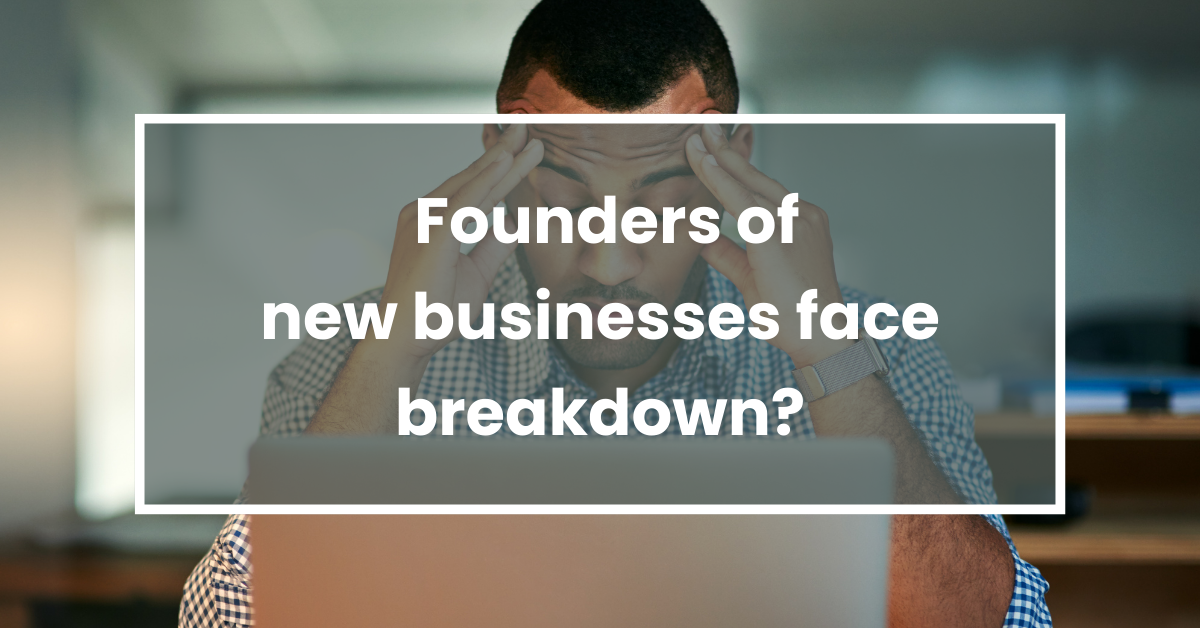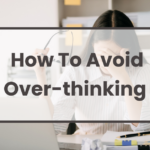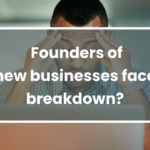Listen to Jerry’s discussion here
It feels as if life nowadays is full of stress and mental anxiety. Looking at this objectively, this is surely overdone, made fashionable by some demented people? No, there is real substance behind it, not only from Covid, but also from alarming rises in the cost of living, issues of diversity and new social ideas, even about gender identity.
The growing numbers of founders of new business are, in some instances, a real example of people who are reaching breaking point. Increasing waves of innovation may well be necessary in the ambitious and difficult world of entrepreneurship, but they come with a failure rate of almost 90%*.
How it used to be in my experience
In large companies it used to be that only one in 40 internal proposals for innovation would actually reach the market outside: all the other possibly bright ideas failed to overcome resistance from inside. If you opened up a business, it would take three years before you knew whether it were sustainably viable or not. If it were new in some important way, you especially expected to struggle with problems of all kinds.
To accomplish something really new in business, you need much more than a great idea, not least on the side of character, courage, determination, stamina and mental strength. All of these, and the rest, are more to do with subjective emotions, feelings, personality and heart than with objective knowledge, skills, ingenuity and head. The latter can even be fun, but the former brings stress.

Pressure is relentless for any Founder. You can easily get ground down until there’s no energy left. More than three in four owners suffer from anxiety, sometimes from things outside their control. Entrepreneurs may be working for 16 hours a day, even on weekends, so home life is threatened. One certainly needs the right kind of business partner, most especially your husband or wife. In such a demanding atmosphere, it is not surprising if arguments spring up.
However, if you envision some way in which you can turn an idea into something concrete, to do something good in the world, these hazards can be avoided or at least alleviated, if only you can manage them. Why succumb, like more than one in three founders, to the temptation to give it all up, when you can recognise your problems for what they are, as well as what you fear? For the problems you have to face up to, there is always a good process, and this must embrace both emotional energies and rational disciplines. Reason is no good without feeling, a conclusion made very readily when people make decisions.
How to solve a problem like…
The magic solution is called ‘thinking’: not simply for driving your intelligence, but also for governing your emotions. How to do that, when your powerful heart-felt reasons for doing things come from an entirely different place than the reasoning of your head?
The trick is to treat everything that is triggered by emotion as simply data.

The process for managing these kinds of emotional data in the best possible way is enjoined by governing your strong internal sources of motivation with the external direction that can come only from your intelligence. Data is no good without process: equally, process is no good without data. Indeed, you would not want to build a bridge without strong materials, whereas without an engineering processor your bridge will either bankrupt you or simply fall down.
Problems are nearly always complex, so they need you to get many competing forces to work together. We find it hard to do this when blinded by emotions, but when we seek the real truth dispassionately, logic makes for an effective referee. From this point of view, a referee is needed even to manage your own conclusions for action. Even more so if other people are involved and you have to win their support.
The Delphic** Advice
The first step to dealing well with other people is to know yourself. How you see the world is so different from the way they do, though we usually presume that if we are looking at something together we both see the same thing. Empathy is not a fluffy word: it is vital, not only to relieve stress by managing your own emotions but also to grasp how others see things and thus communicate well enough with them.
When you start up a business, you may be almost the only one in it, though it’s interesting to notice how many are begun by a pair who share the same vision from different angles. Like comedy script writing teams, the two seem to have the knack of providing what the other one doesn’t, each making the most of the other. Especially in start-up conditions, everyone needs the others.
Emotional Intelligence and Effective Intelligence
So-called ‘emotional intelligence’ entails being able to notice, specify, understand and interpret emotions, both of your own and those of other people. Managing these very personal interactions is possible only when you can actually name the sources of such feelings: that is to identify the driving intention.
Being aware of gut-feel reactions or ‘instincts’ converts the raw energy of basic feelings into thoughts, which are the material for reason. This is the domain of Effective Intelligence. Our research identified a select set of specific Thinking-Intentions, the 21 thinking skills of effective intelligence. They not only reflect the outstanding features of your ‘affective’ or emotional range, but also bring them within the ‘cognitive’ domain. One could say from the amateur to the professional role.
If you haven’t met with Effective Intelligence before you can find out more here.
The combination of thought governing feelings that Effective Intelligence brings can generate results that are life-changing because:
- People can respond more readily to your new initiatives. Even entrepreneurs can be guilty of focusing entirely on their own big idea, instead of listening to others. They could raise better questions of someone else’s proposal, as well as being more adaptive and flexible.
- You will also be willing to invest more time ensuring that people ‘get’ or twig what you’re saying, in spite of the hurly-burly and pressure. At least it makes it easier to stand in their shoes, an essential for empathy. Listening with more attention is not only efficient but also encourages trust in and from those who follow your leadership. In a real team everyone, as well as the leader, is trying to help the others achieve a common goal.
- We all make mistakes, but blaming is rarely the best response for motivating the culprits, though they should try to handle criticism with the maturity of intelligence. On the other hand, it’s a must to unravel the causes of the disaster before pointing the accusing finger. “Justice is whatever renders to a man his due”***, so it is both compassionate and wise.
- We usually assume that we can tell someone’s intention by reading their body language. With most people this works, but not for a particular chunk of the population, which can be recognised only through the Effective Intelligence Thinking-Intentions Profile.
- When disaster has occurred, or when we might be liable to mis-read someone’s mind, a sound thought process may prevent flying into a rage and jumping to the wrong conclusions. It will give you the means to check out the quality of your reactions before it is too late. With Effective Intelligence you can map the different thought process you need for different kinds of problem-solving.
These are just a few aspects of what is now seen as being emotionally intelligent. This strand of intelligence can wrongly be treated as if it were opposed to “real intelligence”, whereas the idea of effective intelligence is that reasoning in theory is not enough to get something actually done, because it is people and their personal values that determine and commit to your action in practice. What binds the two forces together, to turn their competition into mutual support, is the whole or holistic set of thinking-intentions.
Finally, you probably know already that some kinds of stress are not only splendid but essential for exceptional success. Before you go in for a race, if you are not in fear or anxiety you will come only third at best and certainly not win in record time. Positive stress zaps you up, puts you on your mettle and leads to high motivation for peak performance. As Sir Roger Bannister, who ran for my College at Oxford, declared, “Just because they say it’s impossible doesn’t mean you can’t do it.” Thinking-intentions are the interpreters of your mind, specific enough to make you more likely to act on the positive rather than the negative side of stress.
Go to it and keep going.
If you haven’t already discovered your own Thinking-Intentions, find out here.
* According to the United States Bureau of Labor Statistics, the start-up failure rate increases over time, and the most significant percentage of businesses that fail are younger than 10 years. Over the long run, 90% of startups fail. 3 Nov 2023
**Delphic Advice: https://en.wikipedia.org/wiki/Delphic_maxims
“Know thyself” (Greek: Γνῶθι σαυτόν, gnōthi sauton) is a philosophical maxim which was inscribed upon the Temple of Apollo in the ancient Greek precinct of Delphi.
*** https://philosophy.stackexchange.com/questions/41897/who-was-first-to-say-that-justice-is-to-give-each-his-due
The phrase was popularized by Cicero inDe Natura Deorum(“iustitia suum cuique distribuit”, justice renders to everyone his due) and later codified in the Justinian Corpus of Civil Law: “Justice is a habit whereby a man renders to each one his due with constant and perpetual will”.








